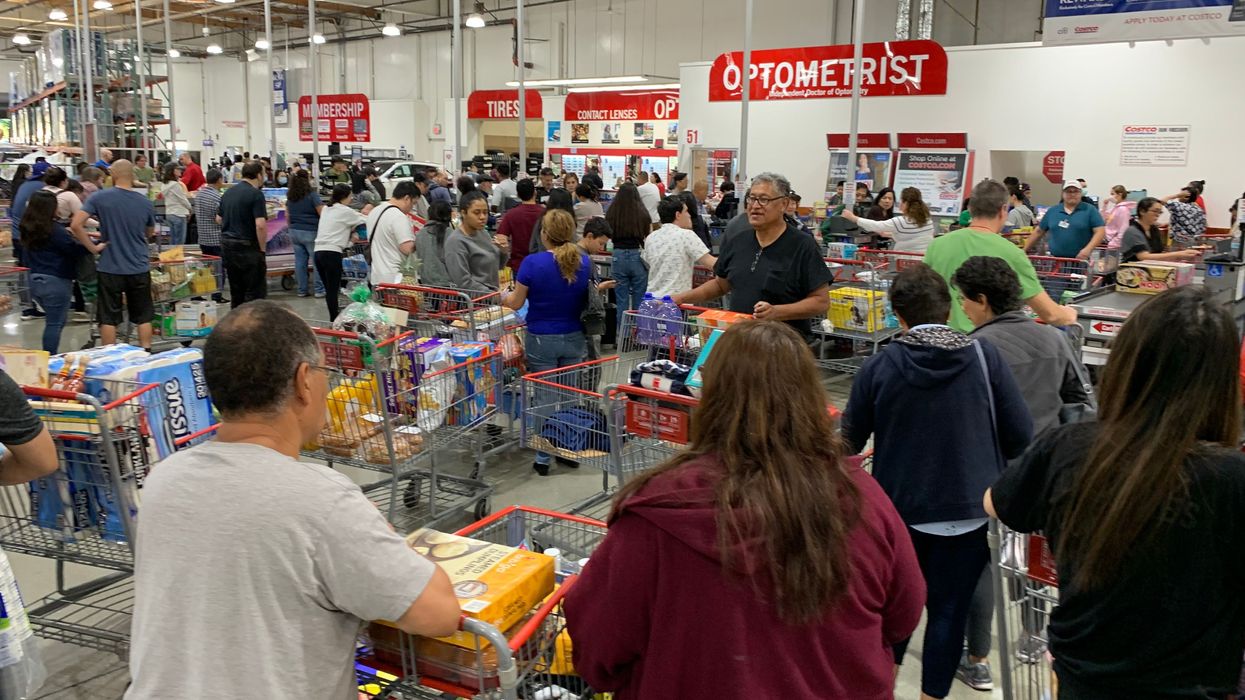The European Union (EU) has advised its 450 million citizens to stockpile essential items, including food and water, to prepare for potential emergencies. This call to action is part of a broader strategy to improve disaster preparedness across the 27-nation bloc, as it faces increasing risks from war, cyberattacks, climate change, and public health crises.
The EU’s recommendation comes in light of recent global developments that have raised concerns about security and stability. Citizens are encouraged to have enough food, water, medicine, and other essential supplies to last at least 72 hours during a crisis.
Why the call for preparedness?
The EU has faced significant challenges in recent years, including the Covid-19 pandemic, geopolitical tensions with Russia, and ongoing concerns about energy security. These events have exposed vulnerabilities in the bloc’s ability to respond to emergencies, prompting the need for better crisis management.
The European Union’s Commissioner for Preparedness and Crisis Management, Hadja Lahbib, highlighted the importance of having a personal stockpile of food and supplies during emergencies. “It is crucial for citizens to have essential items for at least 72 hours to ensure their safety in a crisis,” she said during the announcement of the EU’s new strategy for disaster preparedness.
This push for citizens to stockpile food and other essentials aligns with similar measures already in place in countries like France, Finland, and Sweden, which have longstanding systems for civil preparedness. Sweden, for example, updated its Cold War-era emergency advice in 2024 to better reflect today’s security challenges, such as how to respond to a nuclear attack.
Rising security concerns
The EU’s call to action comes at a time when Europe faces growing threats. The ongoing conflict in Ukraine has sparked concerns about potential Russian military aggression, with NATO Secretary-General Mark Rutte warning of the possibility of an attack in Europe by 2030. The EU has also been grappling with the effects of climate change, cyberattacks, and public health crises like the Covid-19 pandemic.
As these threats grow more interconnected and complex, the European Union is urging its member states and citizens to take proactive measures. Lahbib emphasised the need for a well-prepared population, saying, “Today’s threats are more complicated than ever, and it is essential that we are ready to face them.”
Stockpiling for safety
The EU has outlined several items citizens should consider including in their stockpile: food, water, flashlights, medication, and identification documents. In addition, shortwave radios are recommended as a vital communication tool in the event of a cyberattack or infrastructure failure.
While the EU’s preparedness strategy encourages individual responsibility, it is also looking to build up its own strategic reserves of critical resources. These include firefighting equipment, medical supplies, and assets designed to combat chemical, biological, and nuclear threats. By doing so, the EU aims to support member states during large-scale crises and ensure that resources are available when needed most.
Coordinating preparedness across the bloc
Not all EU countries currently have the same level of preparedness, and Lahbib has called for better coordination between member states. The EU’s new disaster management strategy seeks to unify emergency responses and ensure that countries work together to provide aid and resources during emergencies.
“We cannot rely on reactive measures alone,” Lahbib stated. “We must have a coordinated plan in place to deal with crises before they happen.”
By encouraging citizens to stockpile food and supplies, the European Union is taking a proactive approach to disaster management. The goal is to reduce the pressure on emergency services during the initial stages of a crisis and ensure that individuals and families can protect themselves until help arrives.
Lessons from other countries
The EU’s plan to encourage stockpiling of food and essential supplies mirrors strategies already in place in several member countries. For example, France and Finland have long advised their citizens to be prepared for emergencies by having a stockpile of basic necessities. Sweden’s updated guidance includes instructions for how to act during a nuclear event, a reflection of the current global security situation.
By learning from these countries, the EU hopes to create a more resilient population that is better equipped to face crises. Stockpiling food and supplies for 72 hours is a small but significant step in ensuring that citizens are prepared to weather emergencies.
Challenges ahead
As Europe faces growing risks from geopolitical tensions, climate disasters, and cyberattacks, the EU’s call to action is a reminder of the importance of preparedness. By urging citizens to stockpile food and essential supplies, the European Union is encouraging a culture of readiness that will help mitigate the impact of future crises.
With the world becoming increasingly unpredictable, the EU’s focus on disaster preparedness aims to protect both individuals and communities, ensuring that Europe remains resilient in the face of whatever challenges lie ahead.





